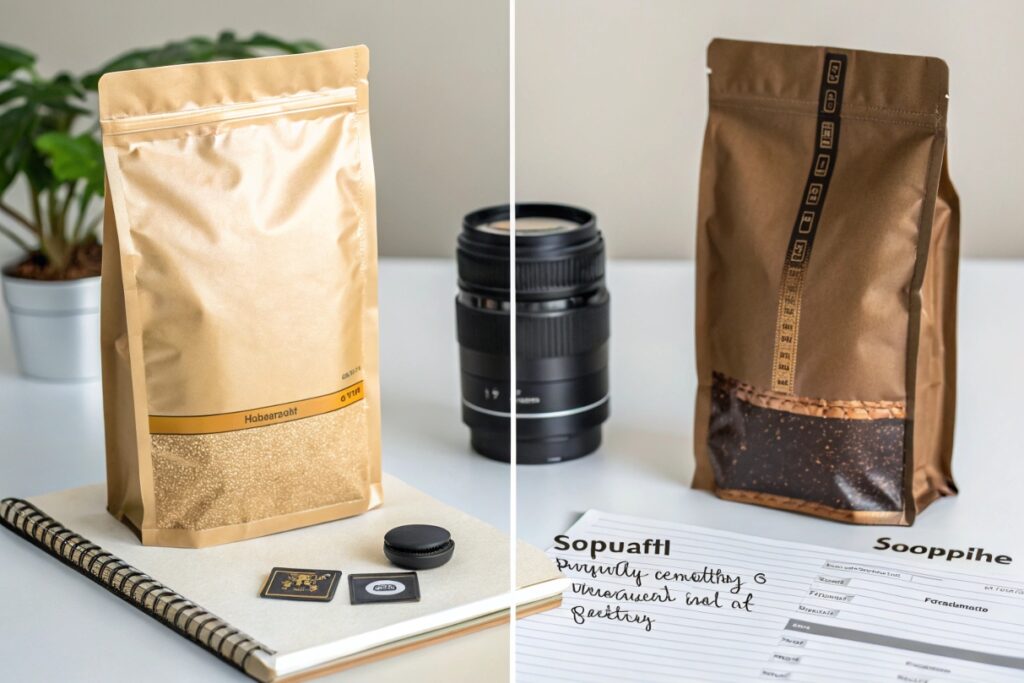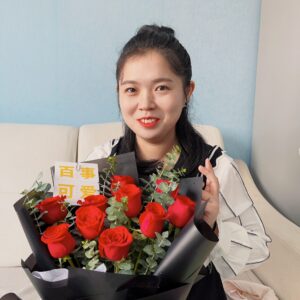Finding a supplier overseas can feel risky. I've learned the hard way that vetting is everything.
I find reliable coffee bag suppliers in China by combining online platforms, factory audits1, sample testing, and clear communication.
I remember ordering bags from a beautiful website—only to receive cheap, mismatched samples. From that failure, I learned to verify factories early and often.
How to find a bag supplier in China?
Looking for a bag supplier starts with clarity and research.
I start by searching B2B marketplaces2, verifying credentials, requesting samples, and visiting factories before placing large orders.
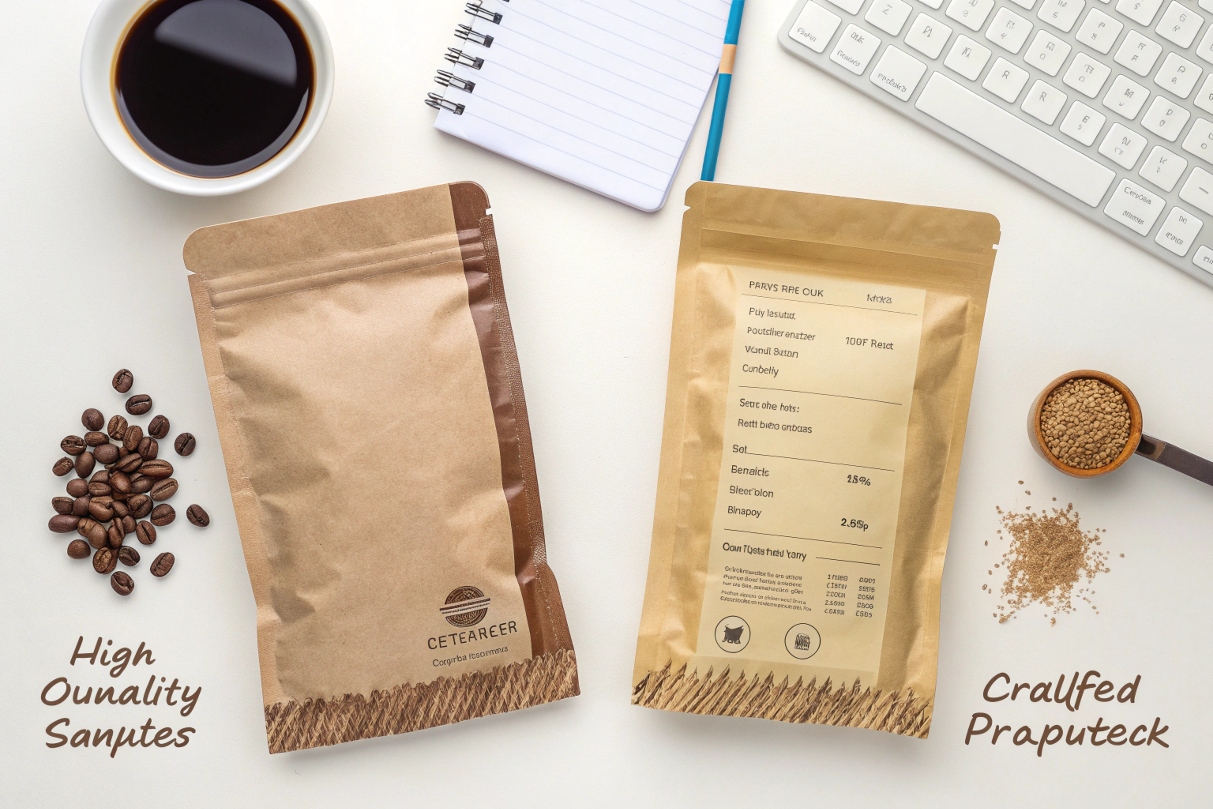
Dive Deeper: Practical sourcing strategy
Use B2B platforms:
Alibaba, Made-in-China, and Globalsources are good places to start. I always filter by “Verified Supplier” or “Audited Manufacturer.” This helps me avoid traders pretending to be factories.
Shortlist real manufacturers:
Companies like DXC Packaging and BN Packaging specialize in flexible coffee packaging. They offer custom sizes3, materials, and prints. A good sign is when the supplier has their own factory photos and video walkthroughs.
Ask for certifications:
I only trust suppliers with ISO 90014, BRC, and FDA certificates. If they can’t show those, I move on.
Request samples:
Before placing any order, I ask for printed samples. I check seal strength, zipper quality, valve alignment, and print clarity.
If possible, visit or audit:
When working on large orders, I always audit the factory either myself or via a 3rd-party service like SGS or Intertek. I want to see their machines, storage, and workflow.
How to find a reliable supplier in China?
Finding a good supplier is more than just getting a good price.
Reliable suppliers are those who offer consistent quality, clear communication, compliance documents, and flexible customization.
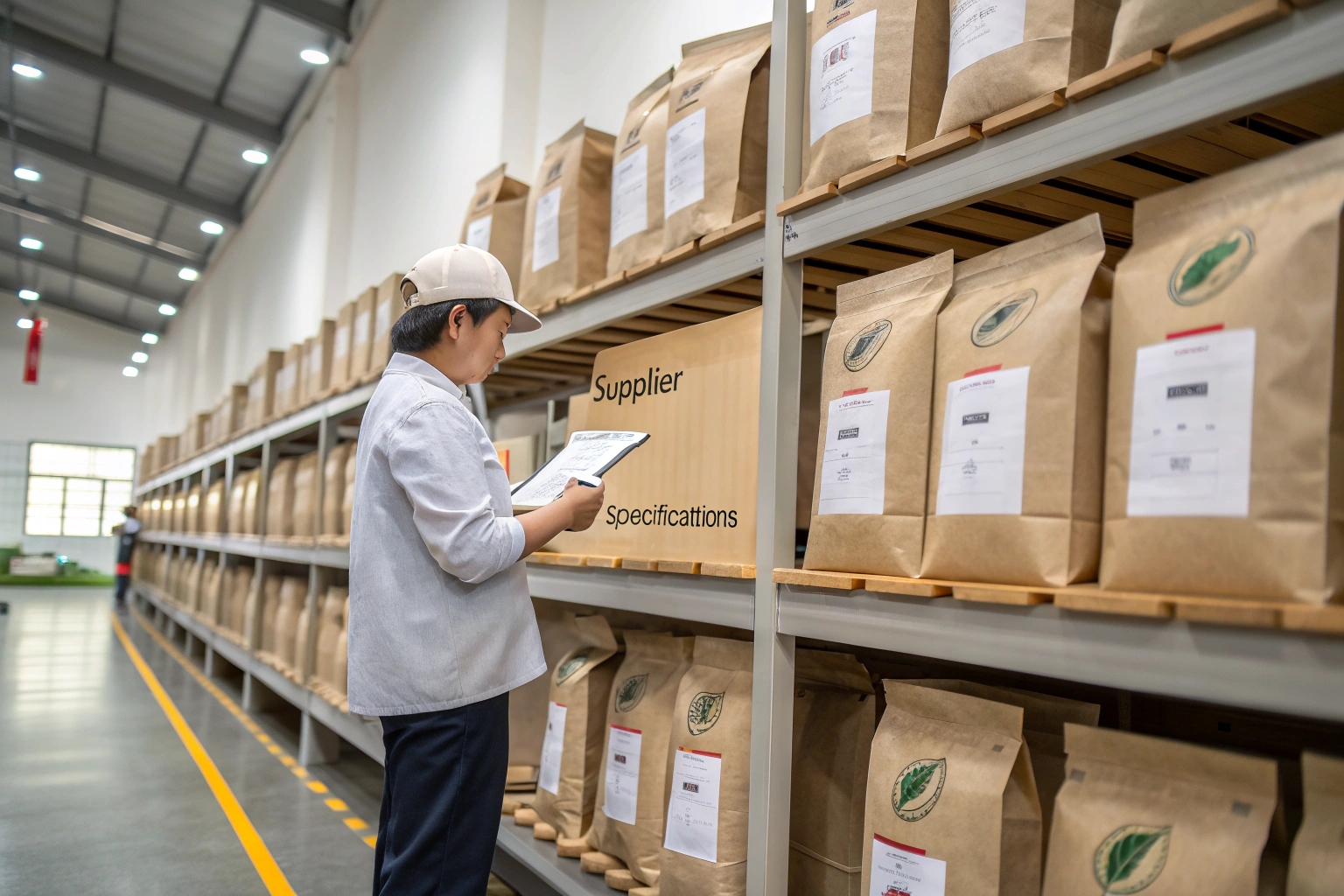
Dive Deeper: What reliability looks like
Fast communication:
I work only with suppliers who respond within 24 hours. If they’re slow now, they’ll be even slower after they get your deposit.
Transparent pricing:
They explain every cost clearly—materials, printing, shipping. No hidden charges. No vague promises.
Strong sample control:
I’ve received glossy, beautiful samples from some suppliers—only to get dull mass production. Reliable partners match samples with final goods. Every time.
Flexible MOQs:
Factories like BN or QIYU offer low MOQs (e.g., 5000 pcs) for custom-printed coffee bags. That’s ideal for testing new SKUs or brands.
Real factory, not just a sales rep:
I always ask for a video call. I want to see the workshop. I look for machines like high-speed lamination lines, pouch-making equipment, and printing units.
What questions should I ask packaging suppliers before placing an order?
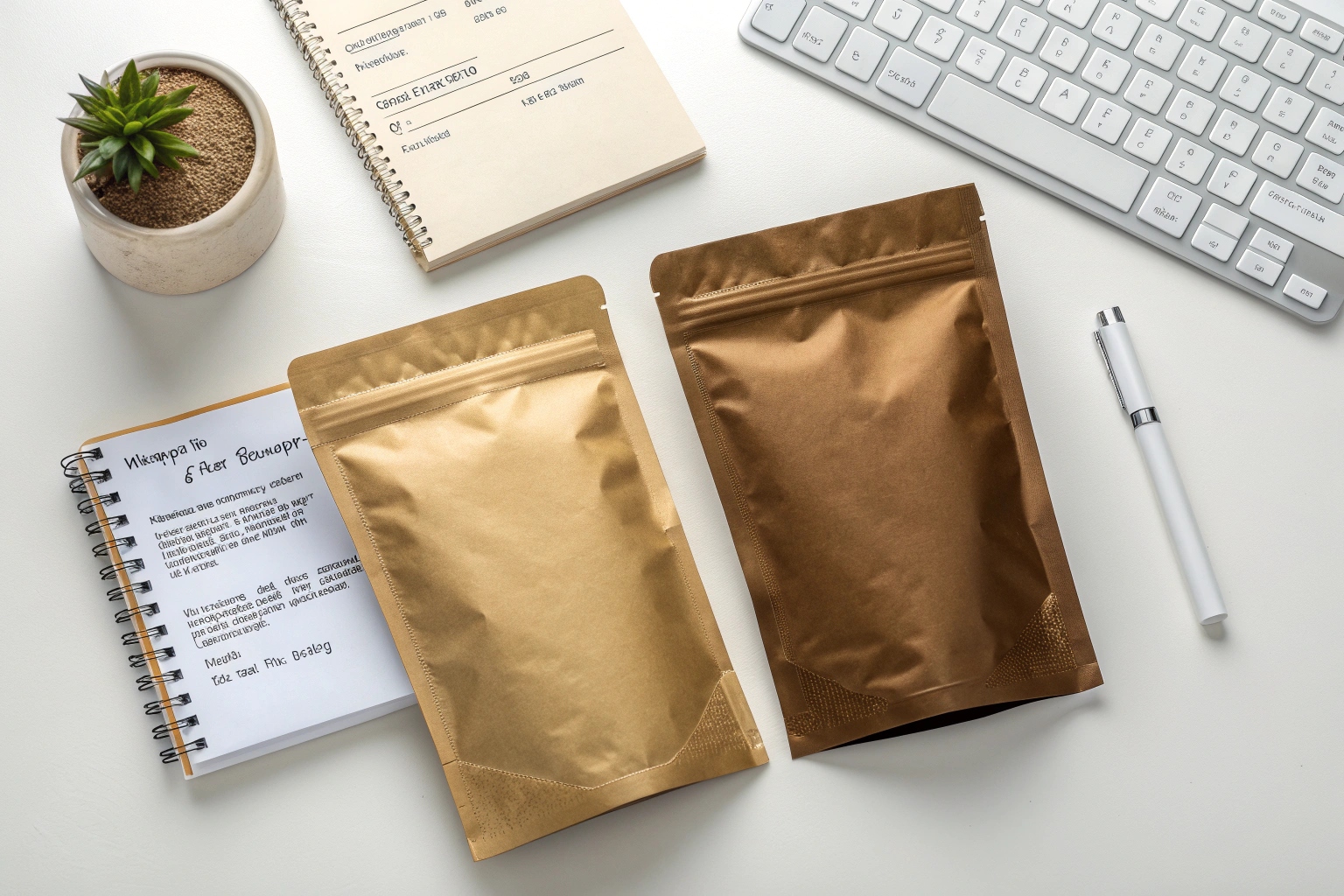
Ordering from the wrong supplier can cost more than money—it can ruin your product launch.
I always ask my packaging suppliers clear, detailed questions before placing any order, so I can avoid delays, defects, and miscommunication.
Early in my sourcing journey, I assumed asking for a “quote” was enough. But after receiving off-size, bad-quality bags that smelled like chemicals, I learned: the quality of your questions shapes the quality of your results.
What should I confirm before choosing a packaging supplier?
It's not just about price—it's about predictability and proof.
Before choosing a supplier, I ask about materials, customization, certification, lead time, MOQ, pricing, and quality control process.
Dive Deeper: My full pre-order checklist
1. Product Specifications
- What materials are available?
- Are the bags food-safe and odorless?
- Can you send physical samples?
- What sizes, shapes, and finishes do you offer?
I request actual sample bags with zippers, valves, and print to check real-world quality.
2. Customization
- Can I print my logo? In how many colors?
- Do you support matte, gloss, or spot UV finishes?
- What kind of zipper and valve types do you provide?
If the supplier lacks a dieline or can’t guide me on layout, that’s a red flag.
3. Certifications
- Do you have ISO, BRC, or FDA certifications?
- Can you send the latest audit report?
For clients selling in the EU, US, or Australia, these documents are non-negotiable.
4. Minimum Order Quantity (MOQ)
- What is your MOQ for custom-printed coffee bags?
- Do you offer lower MOQ for startups?
Many reliable suppliers now offer 5,000-piece MOQs for small brands testing the market.
5. Lead Time & Shipping
- How long from payment to production?
- What are your shipping options (air, sea, express)?
- Can you support DDP service?
Shipping delays ruin launch schedules. I always confirm transit timelines and Incoterms.
6. Pricing Breakdown
- What’s included in the unit cost?
- Are there any setup or printing plate fees?
- Do you offer price tiers for larger quantities?
Transparent pricing helps me plan margins better and prevents surprise costs later.
7. Quality Control
- What is your QC process?
- Can you share photos or videos from the production line?
- What happens if I receive defective goods?
A good supplier will have clear inspection procedures and after-sales support policies.
8. Payment Terms
- What are your accepted payment methods?
- Do you offer trade assurance or escrow?
- Can you split payment—deposit + balance?
I avoid suppliers who ask for 100% upfront without a platform-based guarantee.
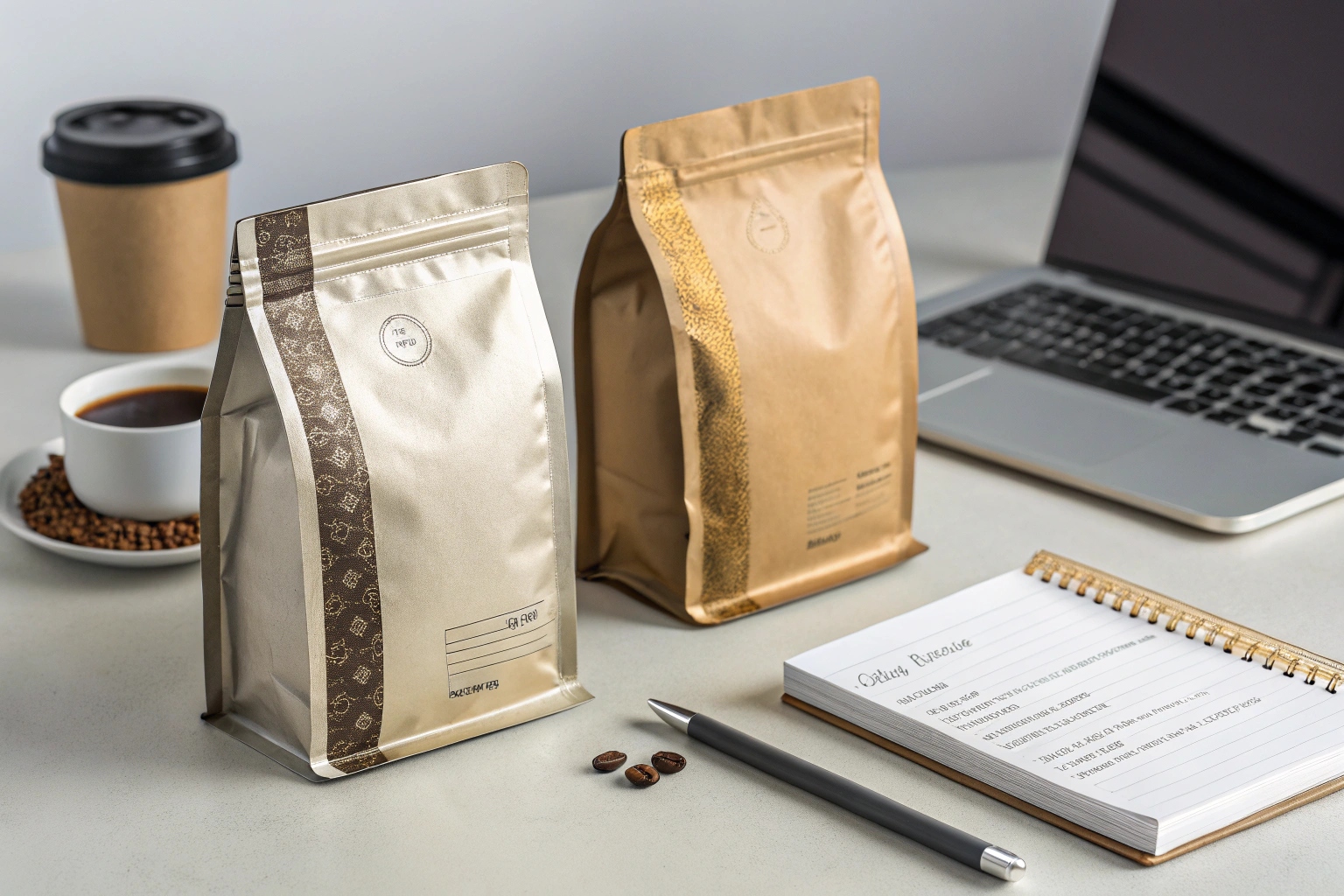
What is the number one coffee shop in China?
You might be surprised—but it’s not Starbucks anymore.
The number one coffee shop in China by store count is Luckin Coffee5, which has over 20,000 locations across the country.
Dive Deeper: Luckin’s rapid rise
Luckin Coffee5 was founded in 2017. By focusing on mobile orders, fast delivery, and affordability, it beat Starbucks in store numbers within three years.
Here’s how Luckin grew so fast:
- It offers affordable coffee that suits local tastes
- Customers order through its mobile app and pick up within minutes
- Stores are compact and efficient, with low overhead
This matters to me because it shows China’s coffee culture is exploding. And with that growth, the need for high-quality, custom coffee packaging also rises—especially for new coffee chains and online coffee brands.
Conclusion
I find reliable coffee bag suppliers in China by verifying factories, checking samples, and demanding clear communication.
-
This resource will guide you through the process of conducting effective factory audits to ensure supplier reliability. ↩
-
Explore this link to discover top B2B platforms that can connect you with reliable suppliers in China. ↩
-
Discover the advantages of custom sizes in packaging, which can enhance your product's appeal and functionality. ↩
-
Learn about ISO 9001 certification to understand its significance in ensuring quality and reliability from suppliers. ↩
-
Explore Luckin Coffee's innovative strategies that led to its rapid growth and success in the competitive coffee market. ↩ ↩

